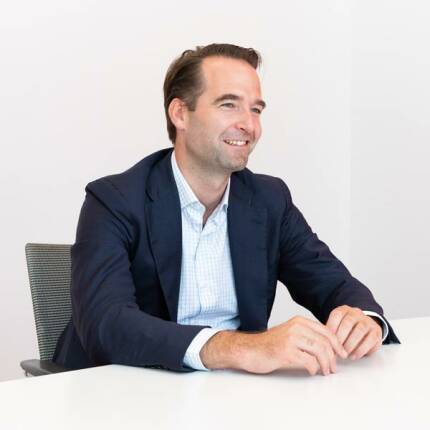
Due to several factors, the sector is in the midst of change. Politics exerts pressure, climate change plays a role and the increasing world population also leaves its mark.
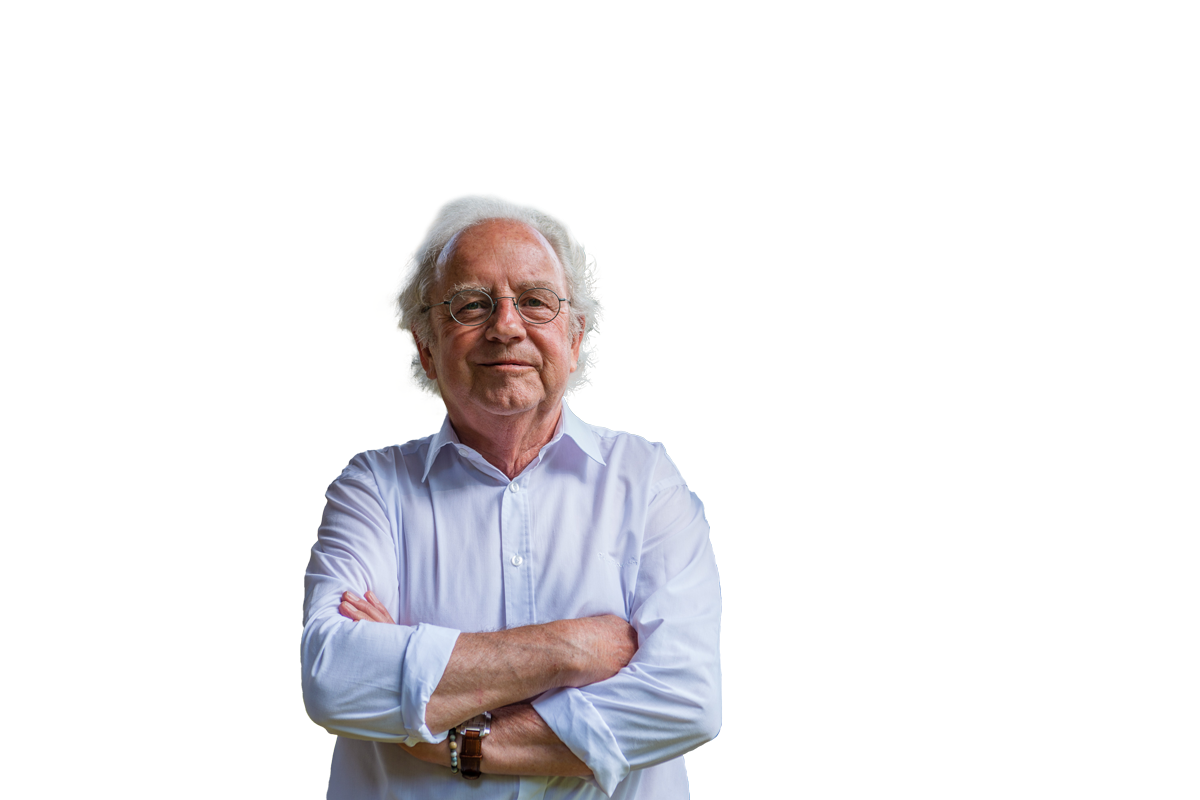

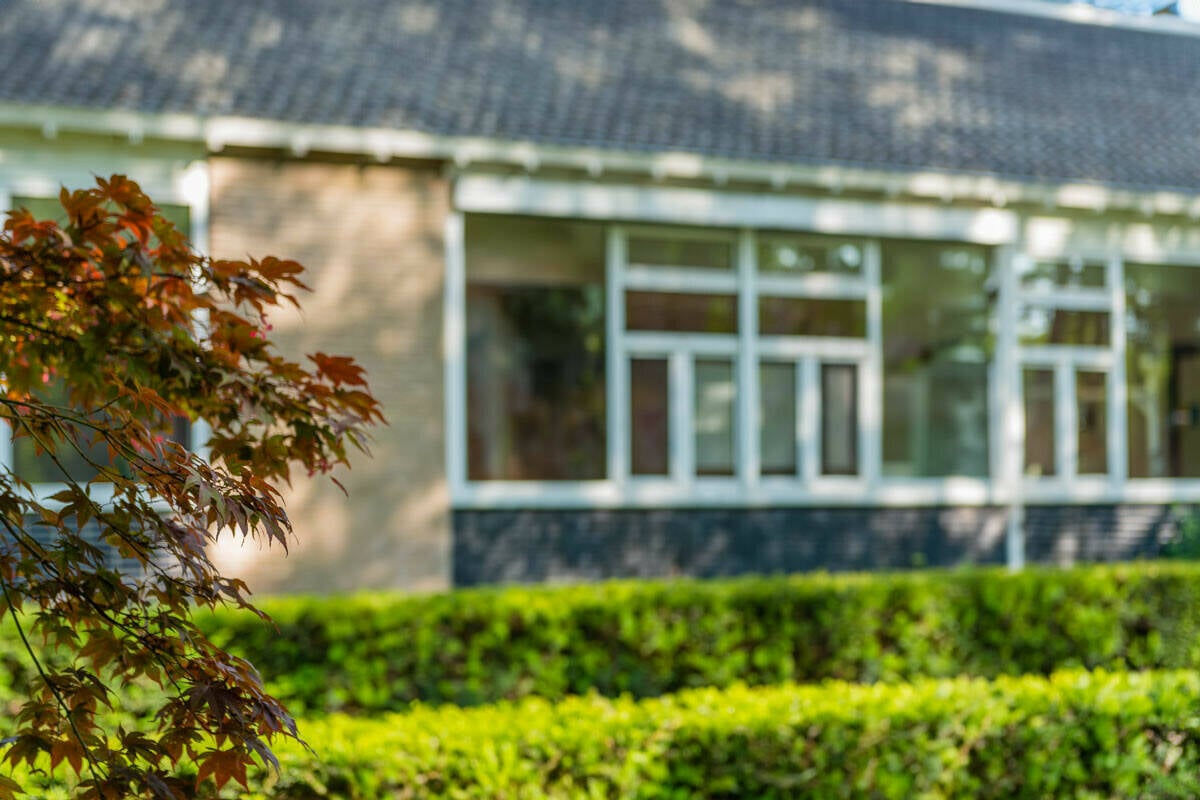
Royal request
The connection between Barneveld and the royal family manifested in a lot of ways. The queen visited the school multiple times, for example. But there is an entertaining story that former board member Peter van Rees likes to share with us. “Prince Bernhard came to us with a special request”, Peter starts the story with a smile. “He was undergoing treatment from a medical specialist in Munich, Germany. And at some point he wanted to gift the specialist something, as a sign of gratitude for the treatment. The specialist had a specific request. He was looking for chickens. Barnevelders, to be specific. And so a member of the royal court approached us and asked if we could provide the chickens.” Peter recites the story with a smile. “It is quite special to be able to facilitate in a royal request like that!”
Johan Cruijff as a pig farmer
And not only royals managed to find the school, also world famous sporters found their way to Barneveld. Peter van Rees: “Johan Cruijff apparently had bought a small pig farm in Spain. But it wasn’t before long that he found out that you actually needed to know some things about pigs in order to manage a successful farm. He approached us and asked if we could give him a crash course in pig farming. It was quite a bizarre situation, to have a famous football player as a student, but of course I wanted to teach the necessary basics about pig farming.” While Peter tells this story, he opens the biography of Johan Cruijff and finds the page where this all is recited. “I was even invited to a talkshow when the book was published to share this story!”

Both gentlemen have warm feelings towards the school. “At my farewell, I thanked the PTC+ Board, among others,” Gerrit says. “For the fact that it was open to employing instructors and trainers who not only had the required prior education and practical competences, but for employing people who had also worked in developing countries and thus had a unique input into the international programme.”
For Peter van Rees, one thing is clear: “I think the practical school in Barneveld has been invaluable for the development of Dutch agriculture, also internationally.”
To conclude, one more anecdote from Gerrit. “One of our former students worked at a large poultry breeding company in Mauritius. That company also exported poultry to Kenya and so, as an after-sales service, this former student went there to have a look. He walked into the company office in Kenya, and there was someone sitting behind a desk. Behind this person hung the Diploma Poultry Husbandry, the course they had both apparently taken in the Netherlands. That’s how small the world can be. From Barneveld, a global network has actually emerged, which is quite special. Mountains don’t move, people do!”, as the alumnus from Mauritius pointed out.
Many Dutch celebrities and international luminaries knew how to find the school. Gerrit and Peter recall one memory after another, some more special than others. “For instance, for a while we were purveyors of Barneveld chickens to Prince Bernhard. He gave those chickens as a gift to an attending specialist in Munich.” .” He had come to know the Barneveld Practical School when it opened ‘Kasteel De Schaffelaar’ which served as our guesthouse.
Princess Beatrix also visited the school when she was still queen.
Peter recalls visits to China, where they had to make a plan for the country’s farmers at the invitation of the Chinese government. “Absurd when you think about it, such a big country like China came to us as a training centre with questions about how they should develop pig farming and feed production within the country. For this, we went to talk to, among others, Wen Jiabao, who later became the country’s prime minister. That we would be invited by such big countries to make missions and sit around the table with such people is something we could never have imagined.”
Education is constantly changing, partly because the sectors also keep changing. Peter: “In the Netherlands, larger farms were emerging, the number of chicken and pig units increased over the years. At the same time, the number of farmers decreased. There was more need for students to learn about managing larger farms. Another development was that there was also more need for theoretical education. Only practical education was insufficient. As a school, we were constantly developing our offer and expanding it. As a result, at a certain point we were able to offer education in numerous subjects at different levels. And should there be a need for something that was not on the shelf, we made sure we could offer that. Because contact was always maintained with former students, both nationally and internationally, we had a large network that we could call on and ask, for example, as guest lecturers.”
Partly due to the policy of the Ministry of Development Cooperation, international education paid a lot of attention to recruiting women as participants in the international courses. They are important in the practice of poultry and pig farming in their countries. “We focused very much on that and at one point even achieved groups where 40 per cent of the participants were women. You notice that the atmosphere in a group is very different when women also participate. There are a number of women who, after participating in one of the international courses, have really contributed to the successful development of institutions or companies after returning to their countries. That’s great to see,” Gerrit says.
Whereas students today are in almost constant contact with the families via their phones, years ago this was different. You can imagine that homesickness sometimes played tricks on them. “For many of them, it was the first time they had been away from home for so long and so far,” says Gerrit. “That’s why a system of contact families was set up from the start and partly due to the efforts of the first director of the Praktijkschool, Ir. Henk Rietberg.
They have been instrumental in the well-being of the trainees.” Gerrit explains that these families from Barneveld and its surroundings undertook things with the trainees, to make them feel that they were not alone and to make them feel at home.
The cultural differences and missing home played a role, but in practice it turned out that often the course participants began feeling at home and became attached during their stay in Barneveld. Gerrit remembers a participant in one of the first international courses from Papua New Guinea. “He was dreading to leave again. In those six months he had made such good contacts. Stories like that stick with you.”
The involvement with the students is high at Aeres TCI. This personal approach has been there for years and is therefore reflected in the conversation with Peter and Gerrit. Many trainees still know them by name and of a large group they also remember how they fared after the course. “That is partly thanks to the alumni magazine Barneveld Letter, which was distributed twice a year,” Peter says. He pulls out a stack of booklets. “These guides were distributed worldwide, to alumni, embassies and the like. Former students could send in a short message and so they often kept in touch with each other.”
That good education plays a key role in the development of areas is something understood as early as the 1970s. “Back then, Jan Pronk, minister of development cooperation was already busy with that theme. Not just to bring students from developing countries to the Netherlands, but precisely to offer practical education there,” Gerrit says. Besides offering international courses in poultry and pig farming and the production of cattle feed from local raw materials in Barneveld, the school started setting up practical schools from 1977 onwards in countries such as Colombia, the Philippines and in Indonesia. The projects in Colombia and the Philippines are still active. PTC+ has made huge leaps when it comes to international education, Peter van Rees knows. “I once was told that at one point there were only five training institutes in the Netherlands where they could teach courses in Spanish, English and French with their own staff. We were one of them, as a small school. And increasingly, other countries knew how to find us.”
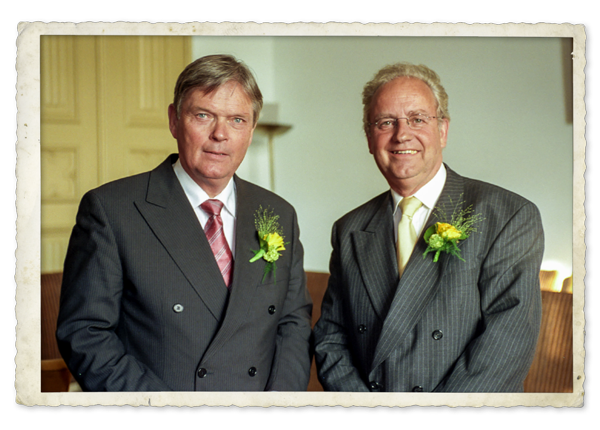
”
In 1978, even football legend Johan Cruijff was taught at the school. He had a pig farm in Spain that was not running great. Peter van Rees gave him a crash course in pig farm management to help the legend get back on his feet.
”
Close friendships developed and sometimes even more.
Once, for instance, a Filipino trainee married a trainee from Sri Lanka.
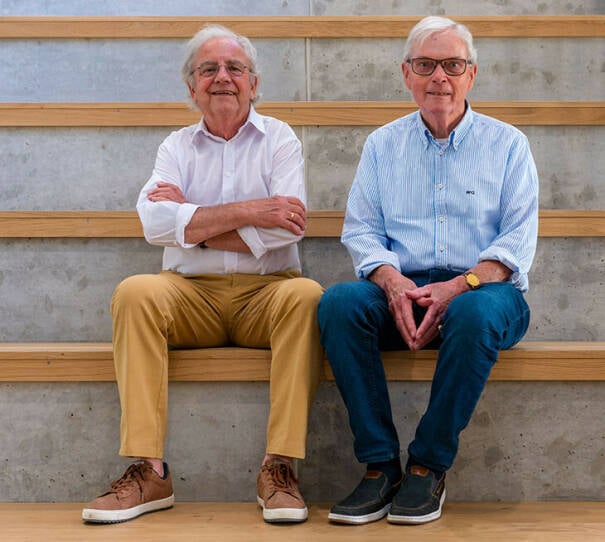
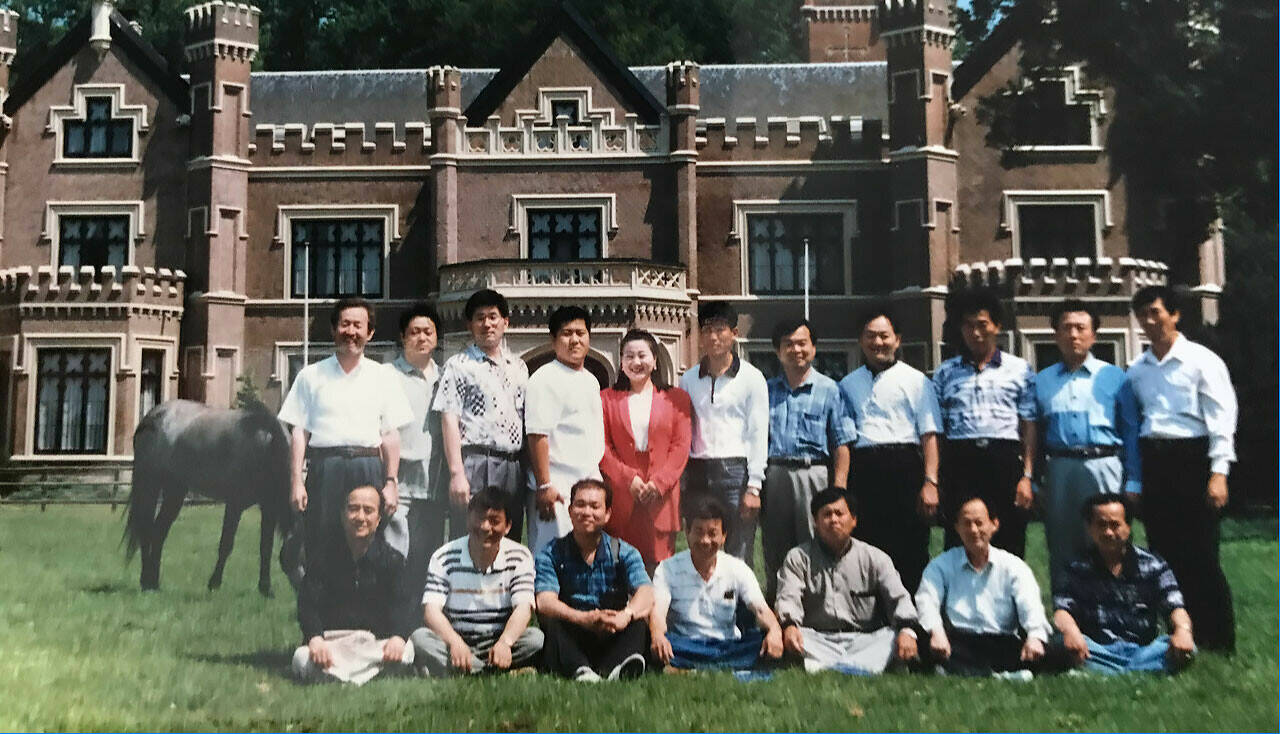
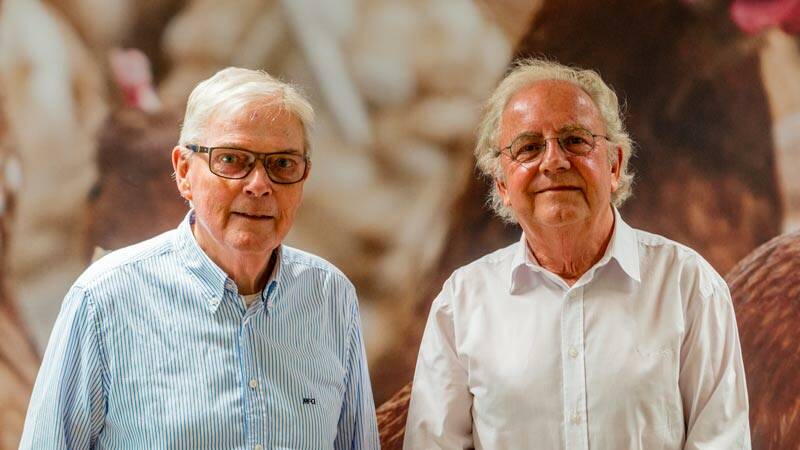
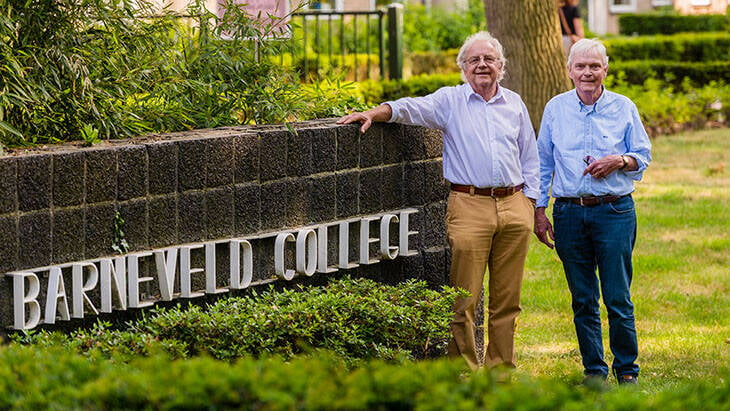
It is 1978 when Peter van Rees is appointed deputy director of the school, which at that time is still called Praktijkschool Barneveld. At the same time, Gerrit Koeslag goes to Tanzania as project leader to set up a practical school for dairy farming. When he returns in 1982, he too is appointed deputy director. By then, both men had been associated with the school for several years, as instructors. From 1968, Peter van Rees, had been teaching participants in the pig husbandry courses and the cattle feed course, and had set up the business administration course. Gerrit Koeslag, who started as an instructor in 1969, was involved in setting up the international education and projects department from 1972. That was quite a challenge with regard to accommodation and supervision of students, but even more in the development of suitable teaching materials and methods. These had to be aimed at the various different practical situations in developing countries. Frequent use was made of adapted facilities, such as the ‘small units’.
Since 1972 International education in Barneveld. Under the name PTC+, Aeres TCI (Aeres Training Centre International) or some other name. What a great time to look back. Former board members Peter van Rees and Gerrit Koeslag take a trip down memory lane.


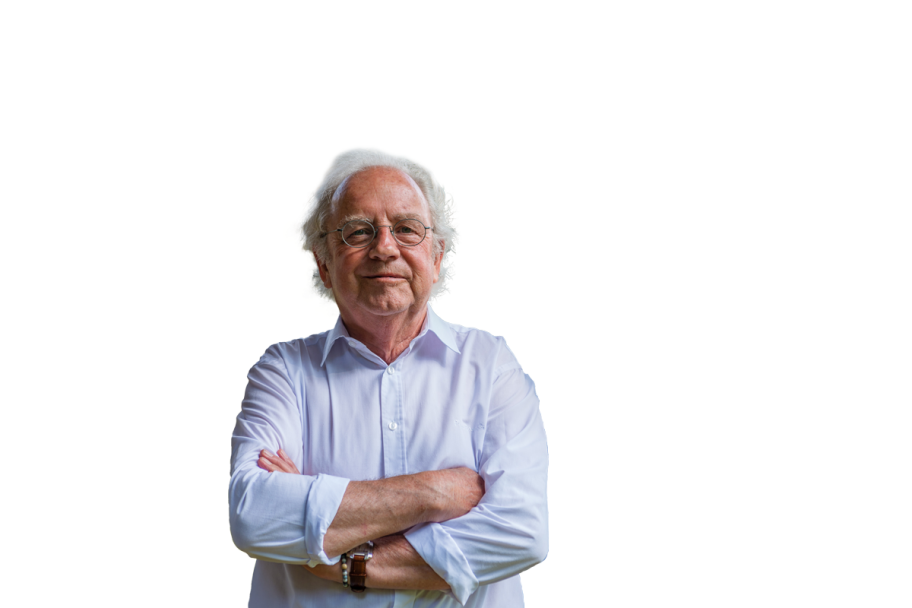
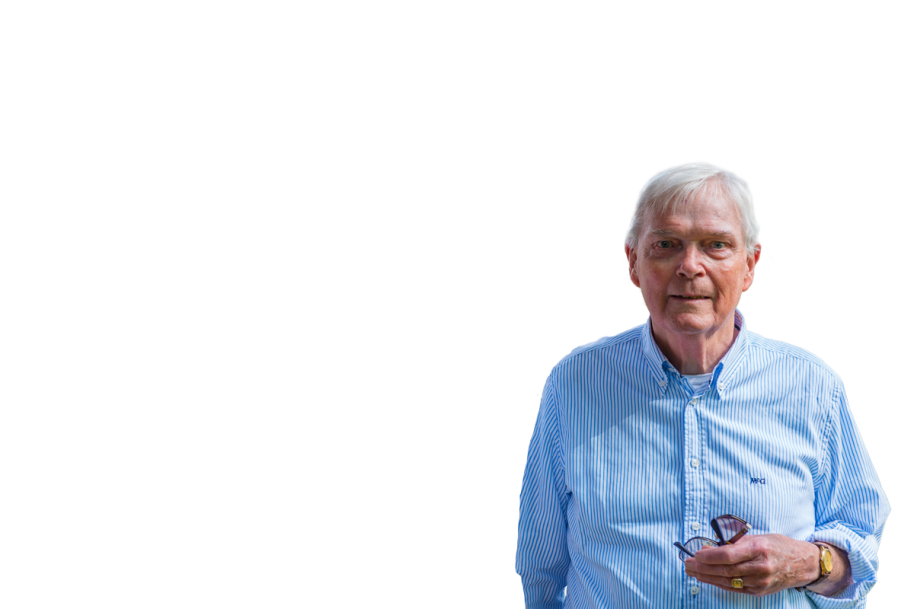
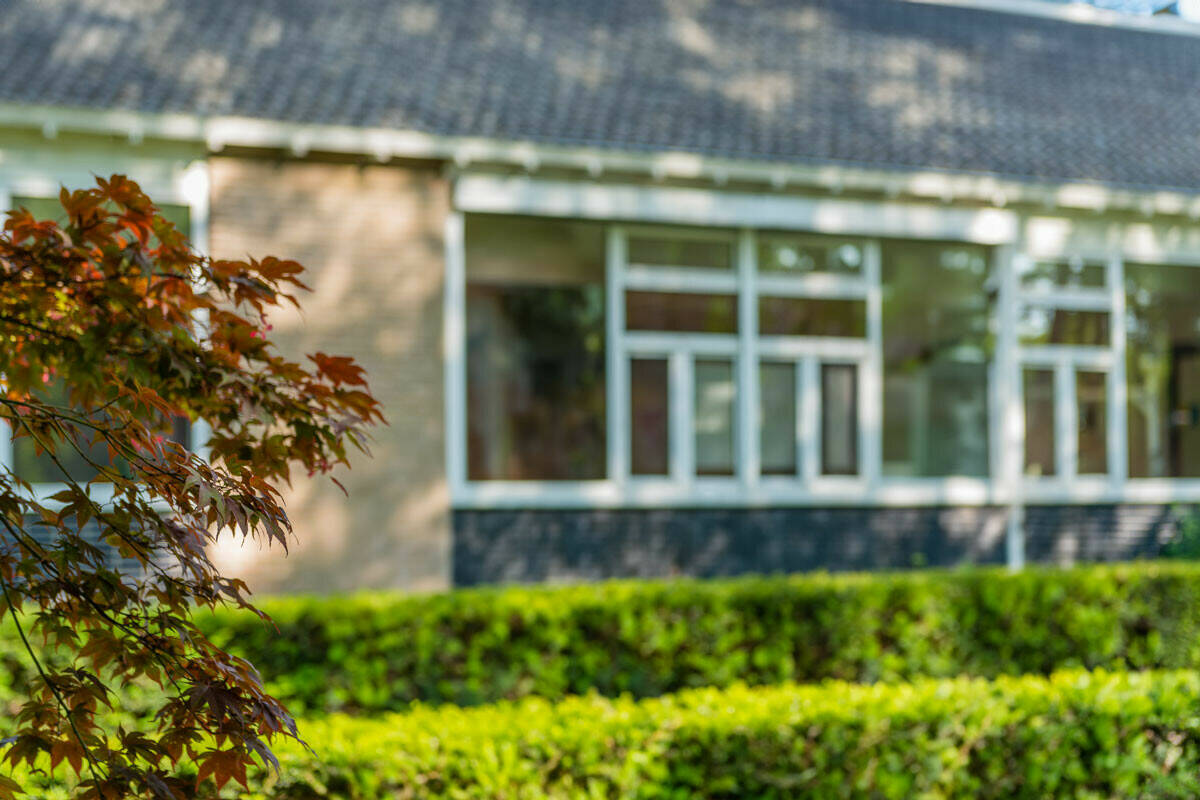
Royal request
The connection between Barneveld and the royal family manifested in a lot of ways. The queen visited the school multiple times, for example. But there is an entertaining story that former board member Peter van Rees likes to share with us. “Prince Bernhard came to us with a special request”, Peter starts the story with a smile. “He was undergoing treatment from a medical specialist in Munich, Germany. And at some point he wanted to gift the specialist something, as a sign of gratitude for the treatment. The specialist had a specific request. He was looking for chickens. Barnevelders, to be specific. And so a member of the royal court approached us and asked if we could provide the chickens.” Peter recites the story with a smile. “It is quite special to be able to facilitate in a royal request like that!”
Johan Cruijff as a pig farmer
And not only royals managed to find the school, also world famous sporters found their way to Barneveld. Peter van Rees: “Johan Cruijff apparently had bought a small pig farm in Spain. But it wasn’t before long that he found out that you actually needed to know some things about pigs in order to manage a successful farm. He approached us and asked if we could give him a crash course in pig farming. It was quite a bizarre situation, to have a famous football player as a student, but of course I wanted to teach the necessary basics about pig farming.” While Peter tells this story, he opens the biography of Johan Cruijff and finds the page where this all is recited. “I was even invited to a talkshow when the book was published to share this story!”



Both gentlemen have warm feelings towards the school. “At my farewell, I thanked the PTC+ Board, among others,” Gerrit says. “For the fact that it was open to employing instructors and trainers who not only had the required prior education and practical competences, but for employing people who had also worked in developing countries and thus had a unique input into the international programme.”
For Peter van Rees, one thing is clear: “I think the practical school in Barneveld has been invaluable for the development of Dutch agriculture, also internationally.”
To conclude, one more anecdote from Gerrit. “One of our former students worked at a large poultry breeding company in Mauritius. That company also exported poultry to Kenya and so, as an after-sales service, this former student went there to have a look. He walked into the company office in Kenya, and there was someone sitting behind a desk. Behind this person hung the Diploma Poultry Husbandry, the course they had both apparently taken in the Netherlands. That’s how small the world can be. From Barneveld, a global network has actually emerged, which is quite special. Mountains don’t move, people do!”, as the alumnus from Mauritius pointed out.
Many Dutch celebrities and international luminaries knew how to find the school. Gerrit and Peter recall one memory after another, some more special than others. “For instance, for a while we were purveyors of Barneveld chickens to Prince Bernhard. He gave those chickens as a gift to an attending specialist in Munich.” .” He had come to know the Barneveld Practical School when it opened ‘Kasteel De Schaffelaar’ which served as our guesthouse.
Princess Beatrix also visited the school when she was still queen.
Peter recalls visits to China, where they had to make a plan for the country’s farmers at the invitation of the Chinese government. “Absurd when you think about it, such a big country like China came to us as a training centre with questions about how they should develop pig farming and feed production within the country. For this, we went to talk to, among others, Wen Jiabao, who later became the country’s prime minister. That we would be invited by such big countries to make missions and sit around the table with such people is something we could never have imagined.”
Education is constantly changing, partly because the sectors also keep changing. Peter: “In the Netherlands, larger farms were emerging, the number of chicken and pig units increased over the years. At the same time, the number of farmers decreased. There was more need for students to learn about managing larger farms. Another development was that there was also more need for theoretical education. Only practical education was insufficient. As a school, we were constantly developing our offer and expanding it. As a result, at a certain point we were able to offer education in numerous subjects at different levels. And should there be a need for something that was not on the shelf, we made sure we could offer that. Because contact was always maintained with former students, both nationally and internationally, we had a large network that we could call on and ask, for example, as guest lecturers.”
Partly due to the policy of the Ministry of Development Cooperation, international education paid a lot of attention to recruiting women as participants in the international courses. They are important in the practice of poultry and pig farming in their countries. “We focused very much on that and at one point even achieved groups where 40 per cent of the participants were women. You notice that the atmosphere in a group is very different when women also participate. There are a number of women who, after participating in one of the international courses, have really contributed to the successful development of institutions or companies after returning to their countries. That’s great to see,” Gerrit says.
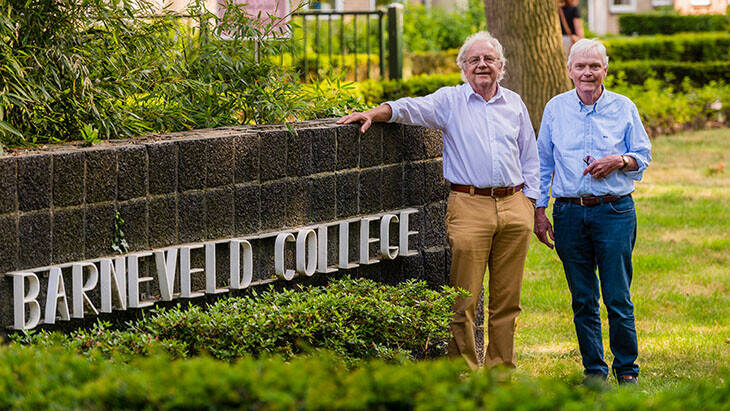
Whereas students today are in almost constant contact with the families via their phones, years ago this was different. You can imagine that homesickness sometimes played tricks on them. “For many of them, it was the first time they had been away from home for so long and so far,” says Gerrit. “That’s why a system of contact families was set up from the start and partly due to the efforts of the first director of the Praktijkschool, Ir. Henk Rietberg.
They have been instrumental in the well-being of the trainees.” Gerrit explains that these families from Barneveld and its surroundings undertook things with the trainees, to make them feel that they were not alone and to make them feel at home.
The cultural differences and missing home played a role, but in practice it turned out that often the course participants began feeling at home and became attached during their stay in Barneveld. Gerrit remembers a participant in one of the first international courses from Papua New Guinea. “He was dreading to leave again. In those six months he had made such good contacts. Stories like that stick with you.”
The involvement with the students is high at Aeres TCI. This personal approach has been there for years and is therefore reflected in the conversation with Peter and Gerrit. Many trainees still know them by name and of a large group they also remember how they fared after the course. “That is partly thanks to the alumni magazine Barneveld Letter, which was distributed twice a year,” Peter says. He pulls out a stack of booklets. “These guides were distributed worldwide, to alumni, embassies and the like. Former students could send in a short message and so they often kept in touch with each other.”
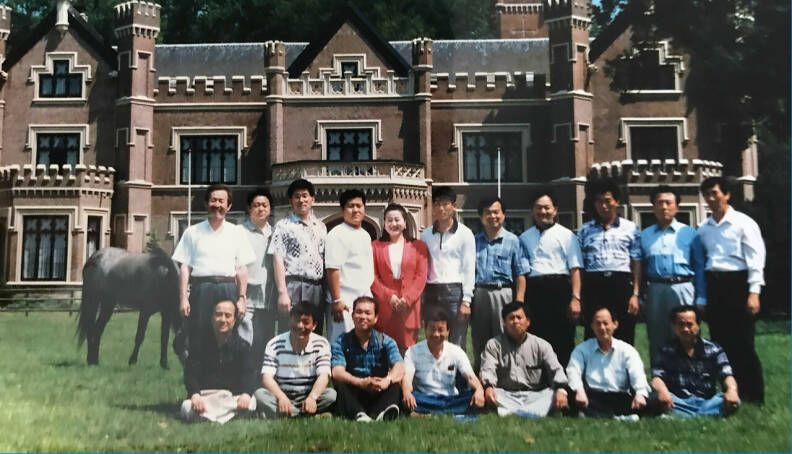
”
Close friendships developed and sometimes even more.
Once, for instance, a Filipino trainee married a trainee from Sri Lanka.
That good education plays a key role in the development of areas is something understood as early as the 1970s. “Back then, Jan Pronk, minister of development cooperation was already busy with that theme. Not just to bring students from developing countries to the Netherlands, but precisely to offer practical education there,” Gerrit says. Besides offering international courses in poultry and pig farming and the production of cattle feed from local raw materials in Barneveld, the school started setting up practical schools from 1977 onwards in countries such as Colombia, the Philippines and in Indonesia. The projects in Colombia and the Philippines are still active. PTC+ has made huge leaps when it comes to international education, Peter van Rees knows. “I once was told that at one point there were only five training institutes in the Netherlands where they could teach courses in Spanish, English and French with their own staff. We were one of them, as a small school. And increasingly, other countries knew how to find us.”
”
In 1978, even football legend Johan Cruijff was taught at the school. He had a pig farm in Spain that was not running great. Peter van Rees gave him a crash course in pig farm management to help the legend get back on his feet.
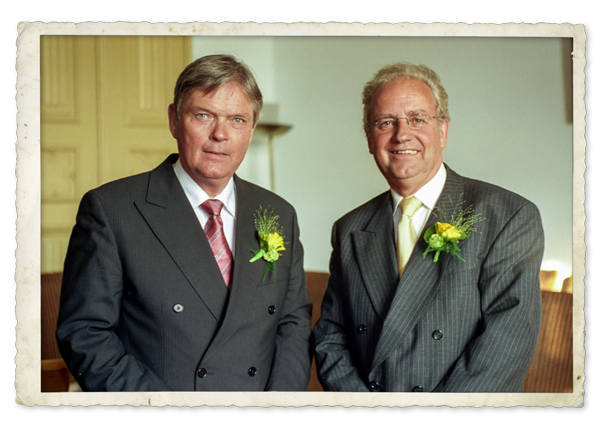
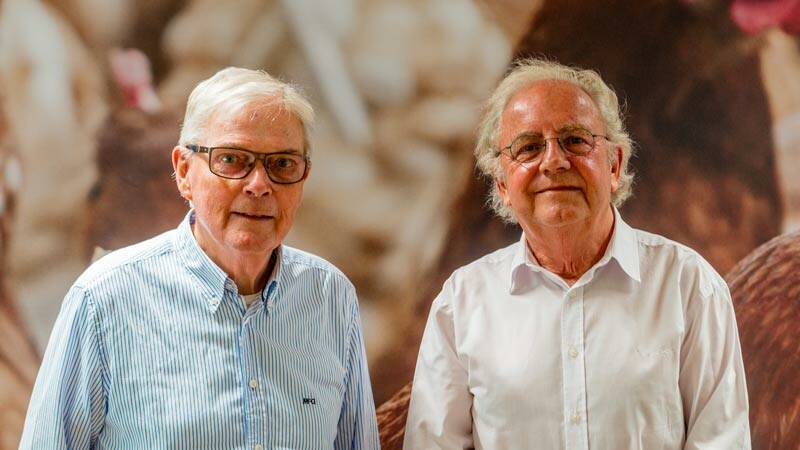
It is 1978 when Peter van Rees is appointed deputy director of the school, which at that time is still called Praktijkschool Barneveld. At the same time, Gerrit Koeslag goes to Tanzania as project leader to set up a practical school for dairy farming. When he returns in 1982, he too is appointed deputy director. By then, both men had been associated with the school for several years, as instructors. From 1968, Peter van Rees, had been teaching participants in the pig husbandry courses and the cattle feed course, and had set up the business administration course. Gerrit Koeslag, who started as an instructor in 1969, was involved in setting up the international education and projects department from 1972. That was quite a challenge with regard to accommodation and supervision of students, but even more in the development of suitable teaching materials and methods. These had to be aimed at the various different practical situations in developing countries. Frequent use was made of adapted facilities, such as the ‘small units’.
Since 1972 International education in Barneveld. Under the name PTC+, Aeres TCI (Aeres Training Centre International) or some other name. What a great time to look back. Former board members Peter van Rees and Gerrit Koeslag take a trip down memory lane.
